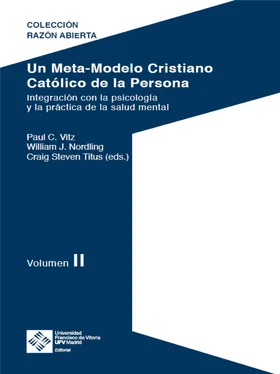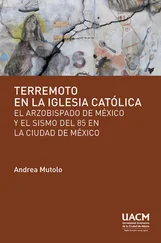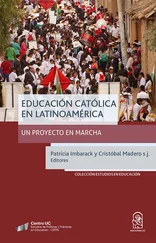Ellis, A. (2004). The road to tolerance: The philosophy of rational emotive behavior therapy . New York, NY: Prometheus Books.
Ellis, A., & Ellis, D. J. (2011). Rational emotive behavior therapy . Washington, DC: American Psychological Association.
Enright, R. D., & Fitzgibbons, R. P. (2014). Forgiveness therapy: An empirical guide for resolving anger and restoring hope . Washington, DC: American Psychological Association.
Esfeld, M. (2000). Aristotle’s direct realism in De anima . The Review of Metaphysics, 54 , 321-336.
Fischer, D. B., Boes, A. D., Demertzi, A., Evrard, H. C., Laureys, S., Edlow, B. L., … Geerling, J. C. (2016). A human brain network derived from coma-causing brainstem lesions. Neurology, 87 (23), 2427-2434.
Frede, D. (2001). Aquinas on phantasia . In D. Perler (Ed.), Ancient and medieval theories of intentionality (pp. 155-183). Leiden, The Netherlands: Brill.
Gasson, J. A. (1963). The internal senses-functions or powers? Part I. The Thomist, 26 (1), 1-14.
Goldstein, E. B. (2010). Sensation and perception (8th ed.). Belmont, CA: Wadsworth Cengage Learning.
Haldane, J. J. (1983). Aquinas on sense-perception. The Philosophical Review, 92 (2), 233-239.
Heatherton, T. F., Wyland, C. L., Macrae, C. N., Demos, K. E., Denny, B. T., & Kelley, W. M. (2006).
Medial prefrontal activity differentiates self from close others. Social Cognitive and Affective Neuroscience, 1 (1), 18-25.
John Paul II. (1993). Veritatis splendor [Encyclical, on certain fundamental questions of the Church’s moral teaching]. Vatican City, Vatican: Libreria Editrice Vaticana.
Journet, C. (1924). Les maladies des sens internes. Revue Thomiste, 7 (25), 35-50.
Kant, I. (1996). Critique of pure reason (W. S. Pluhar, Trans.). Indianapolis. IN: Hackett. (Trabajo original compuesto en 1787).
Kenny, A. (1994). Aquinas on mind . New York, NY: Routledge.
Keyes, B. B., Underwood, L. A., Snyder, V., Dailey, F. L. L., & Hourihan, T. (2018). Healing emotional affective responses to trauma (HEART): A Christian model of working with trauma. Frontiers in the Psychotherapy of Trauma and Dissociation, 1 (2): 212-243.
Klubertanz, G. P. (1952). The discursive power: Sources and doctrine of the vis cogitativa according to St. Thomas Aquinas . St. Louis, MO: The Modern Schoolman.
Kolb, B., & Whishaw, I. Q. (2009). Fundamentals of human neuropsychology (6th ed.). New York, NY: Worth.
Lambert, P., & McShane, P. (2010). Bernard Lonergan: His life and leading ideas . Vancouver, British Columbia: Axial Publishing.
Linley, P. A., & Joseph, S. (2004). Positive change following trauma and adversity: A review. Journal of Traumatic Stress 17 (1), 11-21.
Lisska, A. J. (2007). A look at inner sense in Aquinas: A long-neglected faculty psychology. Proceedings of the American Catholic Philosophical Association, 8o , 1-19.
Locke, J. (2008). An essay concerning human understanding . New York, NY: Oxford University Press.
Lonergan, B. (1997). Verbum: Word and idea in Aquinas . Toronto, Ontario: University of Toronto Press.
Macdonald, P. A. (2007). Direct realism and Aquinas’s account of sensory cognition. The Thomist, 71 , 343-378.
MacIntyre, A. (1999). Dependent rational animals: Why human beings need the virtues . Chicago, IL: Open Court.
Maritain, J. (1995). Distinguish to unite, or the degrees of knowledge (G. B. Phelan, Trans.). Notre Dame, IN: University of Notre Dame. (Trabajo original publicado en 1932).
McLuhan, E. (2015). The sensus communis, synesthesia, and the soul . New York, NY: BPS Books.
Murphy, N. (1998). Supervenience and the nonreducibility of ethics to biology. In R. J. Russell, W. R. Stoeger, & F. J. Ayala (Eds.), Evolutionary and molecular biology: Scientific perspectives on divine action (pp. 463-489). Berkeley, CA: Center for Theology and the Natural Sciences.
Pasnau, R. (2002). Thomas Aquinas on human nature . New York, NY: Cambridge University Press.
Peghaire, J. (1943). A forgotten sense, the cogitative according to St. Thomas Aquinas. Modern Schoolman, 2o , 123-140.
Peterson, C., & Seligman, M. E. P. (Eds.) (2004). Character strengths and virtues: A handbook and classification . New York, NY: Oxford University Press.
Pfeifer, J. H., Lieberman, M. D., & Dapretto, M. (2007). «I know you are but what am I?!»: Neural bases of selfand social knowledge retrieval in children and adults. Journal of Cognitive Neuroscience, 19 (8), 1323-1337.
Popper, K. R. (1975). Objective knowledge: An evolutionary approach . London, United Kingdom: Oxford University Press.
— (1983). Realism and the aim of science . New York: Rowman & Littlefield.
Pryor, K., & Norris, K. S. (1991). Dolphin societies: Discoveries and puzzles . Berkeley, CA: University of California Press.
Ripperger, C. (2013). Introduction to the science of mental health . Lincoln, NE: Sensus Traditionis Press.
Schore, A. N. (2002). Dysregulation of the right brain: A fundamental mechanism of traumatic attachment and the psychopathogenesis of posttraumatic stress disorder. Australian and New Zealand Journal of Psychiatry, 36 (1), 9-30.
Siegel, D. J. (2012). Pocket guide to interpersonal neurobiology: An integrative handbook of the mind . New York, NY: Norton.
Sokolowski, R. (2000). Introduction to phenomenology . New York, NY: Cambridge University Press.
— (2008). Phenomenology of the human person . New York, NY: Cambridge University Press.
Sperry, L., & Sperry, J. (2012). Case conceptualization: Mastering this competency with ease and confidence . New York, NY: Routledge.
Stillings, N. A., Weisler, S. E., Chase, C. H., Feinstein, M. H., Garfield, J. L., & Rissland, E. L. (1995). Cognitive science: An introduction (2.ª ed.). Cambridge, MA: MIT Press.
Tellkamp, J. A. (2007). Aquinas on intentions in the medium and in the mind. Proceedings of the American Catholic Philosophical Association, 8o , 275-289.
— (2012). Vis aestimativa and vis cogitativa in Thomas Aquinas’s Commentary on the Sentences . The Thomist, 76 (4), 611-640.
Titus, C. S. (2013). Reasonable acts. In R. Cessario, S. Titus, & P. C. Vitz (Eds.), Philosophical virtues and psychological strengths: Building the bridge , (pp. 81-114). Manchester, NH: Sophia Institute Press.
Vitz, P. (2017). The origin of consciousness in the integration of analog (right hemisphere) and digital (left hemisphere) codes. Journal of Consciousness Exploration & Research, 8 (11), 881-906.
Wojtyła, K., (1979). The acting person (A. Potocki, Trans.; A.-T. Tymieniecka, Ed.). Boston, MA: Reidel. (Trabajo original publicado en 1969).
Wolfson, H. A. (1935). The internal senses in Latin, Arabic, and Hebrew philosophical texts. The Harvard Theological Review, 28 (2), 69-133.
Worthington, E. L., Jr. (2003). Forgiving and reconciling: Bridges to wholeness and hope (Rev. ed.). Downers Grove, IL: InterVarsity Press.
— (Ed.) (2005). Handbook of forgiveness . New York, NY: Routledge.
Wundt, W. (1904). Principles of physiological psychology (E. B. Titchener, Trans.). New York, NY: Macmillan.
Życiński, J. (2006). God and evolution: Fundamental questions of Christian evolutionism (K. W. Kemp & Z. Maslanka, Trans.). Washington, DC: The Catholic University of America Press.
|
14 |
|
Emocional |
|
CHRISTOPHER GROSS, CRAIG STEVEN TITUS, PAUL C. VITZ Y WILLIAM J. NORDLING |
¿Por qué algunas personas prolongan su ira en estados de rencor, mientras que otras perdonan? ¿Por qué algunas personas buscan el placer sexual y el afecto emocional fuera de su compromiso conyugal, mientras que otras permanecen fieles? ¿Por qué algunas personas se sienten compulsivamente atraídas por la comida, el alcohol o las drogas, mientras que otras controlan sus deseos en estos asuntos? ¿Por qué algunas personas quedan atrapadas en espirales de miedo, mientras que otras expresan valentía? Existen razones detrás de tales comportamientos y tendencias emocionales. Algunas de estas acciones parecen estar motivadas por una emoción desenfrenada, mientras que otras parecen estar enraizadas en la razón y acompañadas de una emoción controlada. Dado el papel destacado que desempeñan las emociones en la creación de una vida realizada, la comprensión de las emociones es importante para muchas disciplinas que tratan de comprender a la persona; entre ellas se incluyen las disciplinas de las ciencias psicológicas y sociales, la neurociencia, el derecho e incluso la teología.
Читать дальше












